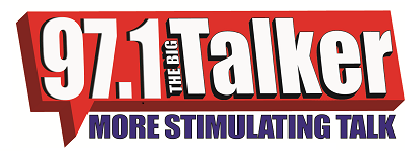Getting a mortgage can be a daunting process. From the different types of mortgages to what to look for in a lender, there is a lot of information and a lot of paperwork. If you want to make your mortgage process easier and less stressful, here are three things you need to know before getting a mortgage
Understanding mortgage loans
A mortgage is a loan taken by a borrower from a lending institution to purchase a property. The borrower is said to be “mortgaged” to the lender. The borrower receives the title for the property and it is the borrower’s until the mortgage is paid off. The borrower usually pays back the lender with a combination of regular payments, called “principal” (the amount borrowed), and interest charges. The mortgage loan is secured by a lien on the “mortgaged property.”
Mortgage loans are usually paid off in regular installments over the course of several years. Mortgage payments are usually taken out of the homeowner’s account every month, which means, this is one of the most reliable and common ways to pay off home improvements.
First thing: stable income is a must
If you’re looking to buy a home, one of the first things you’ll need to prove to a potential lender is that you have a stable and predictable income. This shows the banks and lenders that you would be able to cover your mortgage payments each month.
Stable income is one of the most important factors for qualifying for a mortgage. You can have several hundreds of thousands of dollars in savings and still be denied a mortgage if you don’t have a stable income.
How about entrepreneurs? Clients that own businesses or a small business would need to prove the business is consistently profitable for the past (at least) 18 months before lenders approve a mortgage loan. If you are self-employed, it is important to show years of tax returns and profit/loss statements.
Lenders want to see that you have enough money to cover the mortgage payment and you won’t be at risk of defaulting on your mortgage.
Second thing: pay attention to your credit score
Your credit score is important to banks and lenders. It is actually an easy way for lenders to gauge your preparedness for a mortgage loan. Lenders understand that your credit score is the result of a compilation of your financial history and is a reflection of the risk you pose to the lender should you default on payments.
If you have a high credit score, you are lower risk and therefore a lower interest rate is charged. If your credit score is low, you are seen as a high risk. Therefore, an expensive interest rate is applied and you could even be denied a mortgage altogether.
Third thing: keep your debt to a minimum
One of the most important things you can do is keep your debt to a minimum when you are looking for a mortgage loan.
The debt-to-income ratio is an indicator of how much debt you have, in correlation to your income. The lower the ratio, the lower the default risk for the banks and lenders. The lender will evaluate your financial situation and determine if you can make your monthly payments. Your credit score will be affected if your debt-to-income ratio is too high. A high debt-to-income ratio means you should avoid taking out a mortgage if your income is too low.
Frequently asked questions on the common things you need to know before getting a mortgage
Is it hard to get a mortgage?
Getting a mortgage is not hard at all but the application process can be long and tedious with lots of paperwork to submit. The biggest difficulty most people have when trying to get a mortgage is managing all the paperwork and government regulations. It is not a secret that banks are very tough and conservative when it comes to lending money . Even though you are applying for a mortgage, the bank and lenders will appraise your credit history, assets, and debt-to-income ratio. Good mortgage lenders will try to get to know details about you and your assets before approving a loan.
What should you not do when getting a mortgage?
Never lie about your income. This is one of the cardinal rules of getting a mortgage. Lenders will check your income with the Canada Revenue Agency (CRA), so be honest on your application.
You should avoid doing anything that could affect your credit score, such as applying for new credit, missing a credit card or any loan payment, and making large purchases using your credit card.
Work with Matrix Mortgage Global
Matrix Mortgage Global (Lic. #11108) has access to over 100 different lenders. You have access to a wide range of lending partners who are ready to offer you various mortgage solutions, including mortgage renewals, refinancing, second mortgages, home equity loans, bridge loans, and other specialized mortgage products.
Jermaine Hinds, Mortgage Broker Offers Personalized Solutions for Home Buyers and Homeowners
Jermaine Hinds, Mortgage Broker believes in delivering results to clients with their best rate and solutions possible. He has built his reputation around helping people and getting them mortgage financing that fits their situations for the long term. The collective knowledge and experience from Jermaine and his team will help you achieve generational wealth through real estate.
If you are interested to stay informed and broadening your knowledge on Canadian mortgages, consider subscribing to his YouTube Channel for a weekly update.
Matrix Mortgage Global - Jermaine Hinds | Mortgage Broker


























